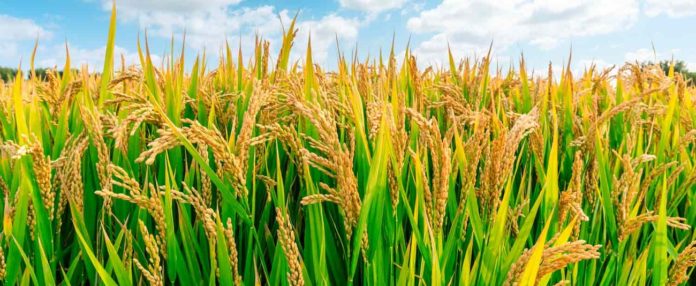By Hassan Gbassay Koroma
Chief Minister, Jacob Jusu Saffa, who also doubles as the Chairman of the Sierra Leone Peoples Party (SLPP) Manifesto Committee, has stated that over 50% of poverty in the country is as a result of food poverty.
He was yesterday speaking on Radio Democracy ‘Good Morning Salone Program’ where he stated that his SLPP party believes one of the ways to solve the food problem in the country is to prioritize agriculture and grows what the country eat.
He disclosed that the country is spending over $250 million United States Dollars annually just on rice importation, noting that if the country starts to grown its own staple food which is rice, it will not only help to solve the food problem but it will also help to boost the country’s economy.
He further noted that as a government they are going to ensure that they create an enabling environment for the private sector to invest in agriculture and also create credit facilities to enable people participate in the growing of food.
“Agriculture is a key priority to this administration, growing our own food and in the two years times we should be able to feed ourselves from the rice we grow, unless if someone chooses to eat imported rice,” he said.
The SLPP on Tuesday May 23, launched their 2023 manifesto in Kenema, northern part of Sierra Leone. The manifesto is targeting five key development areas with agriculture as main priority for the next five years.
According to the manifesto, the first pillar of the five which is ‘Feed Salone’, entails an ambitious programme to boost staple food production to drastically minimize the reliance on food imports, increase exports, create jobs, boost economic growth and reduce poverty,
They stated that transforming agriculture and boosting food security remains the single largest contributing sector to Sierra Leone’s GDP at 60% and employs well over 65% of the population.
They said the country is endowed with the right conditions to support irrigated and mechanised large-scale food production, enough to meet local demands and for exports.
The SLPP Manifesto states that the agriculture sector is characterised by small holder production systems, low levels of mechanisation, limited use of improved technologies and practices and consequently, growth in the sector has hovered around an annual average of 4% for the past decade.
They said the export performance remains low, below 10% of total export value, and constitutes mostly cocoa, stating that agriculture has been instrumental for driving President Bio’s human capital development agenda and the primary objective of the sector under the New Direction government has been to boost local food production to “nourish the body”.
The manifesto further states that the Bio-led government’s National Agricultural Transformation programme (NAT 2023) prioritized the production of the staple’s foods, rice, and cassava as a strategy to reduce hunger and malnutrition and the government’s shift in policy to a private sector-led service delivery of key agricultural inputs such as seeds, fertilizers and mechanization services introduced dynamism in the sector. The government supported this shift by making finance available to the private sector, invested to build rural roads and bridges, and expanded mechanization across the country.





